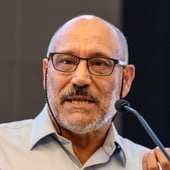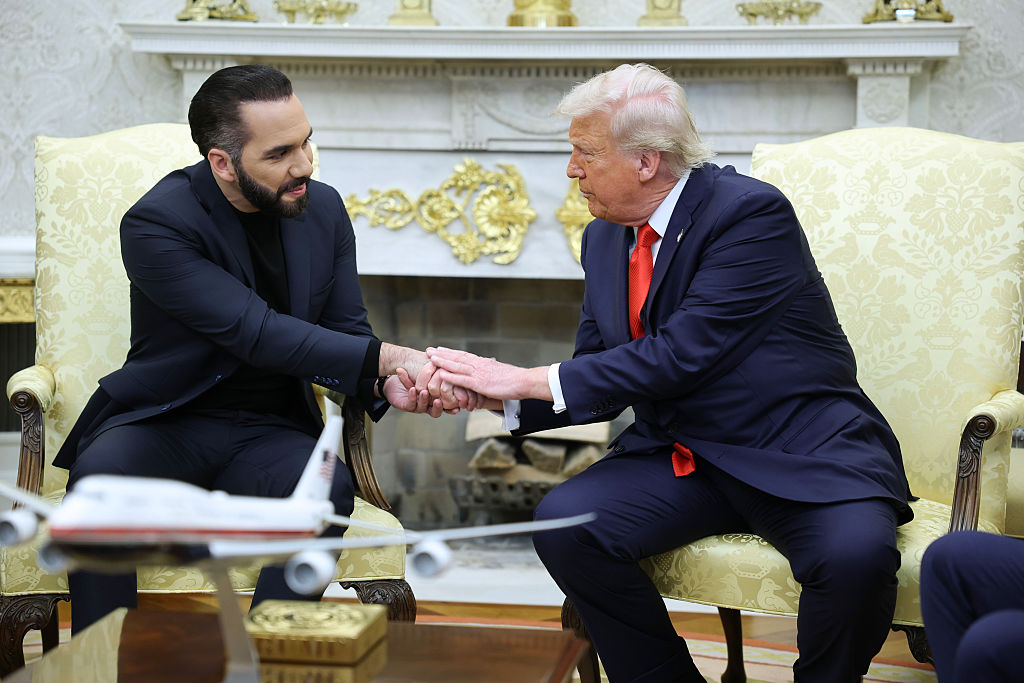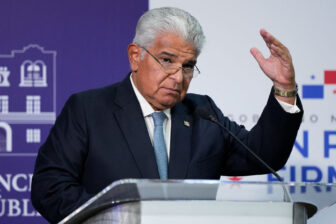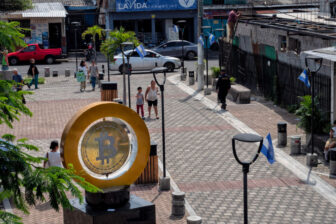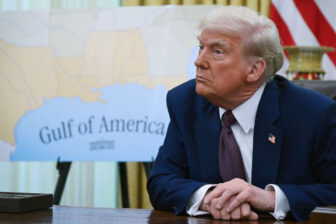
When President Nayib Bukele of El Salvador met with business leaders from across Latin America in February to encourage investment, he said he was hoping that an “economic miracle” in the country would eclipse the “security miracle” that his administration is known for. But an “economic miracle” seems increasingly far off.
Under Bukele’s leadership, the country’s murder rate has plummeted—from 51 per 100,000 people in 2019, when he took office, to just 1.9 in 2024. This has made him one of the world’s most popular leaders, registering an 83% approval rating in January. However, now that the security situation has improved, the public is beginning to turn its attention to mounting economic problems. The cost of living is rising, and the poverty rate increased from 26.8% in 2019 to 30.3% in 2023. Bukele’s major economic initiative to make Bitcoin legal tender has not borne fruit, and a recent IMF package seems to be a stopgap for an economy that will remain heavily indebted.
Against this backdrop, Bukele met with U.S. Secretary of State Marco Rubio in February, agreeing to accept flights of supposed criminal migrants from the U.S. and imprison them. In return, Bukele reportedly asked for two things: payment, and the return of high-ranking Salvadoran gang leaders facing trial in the U.S.
According to new reporting from The New York Times, the latter request alarmed U.S. Justice Department officials, who have spent years building cases against the gang leaders, alleging they had committed crimes in the U.S.—and that they cut secret deals with the Bukele administration through at least 2022 to lower the official murder rate in return for special treatment. A U.S. indictment claims gangs agreed to reduce public murders and hide bodies, and a gang leader detailed alleged deals in a recent interview with El Faro, saying gangs whipped votes for Bukele and his party in their neighborhoods. (Bukele denies wrongdoing.)
The Salvadoran president has already received one of the gang leaders he wants back, and he may receive them all. This could prevent more details of alleged negotiations from coming to light in U.S. courtrooms—potentially burying the full truth for good. Given the faltering economy, it’s likely that Bukele will continue to cut controversial deals with the Trump administration to protect his popularity.
A history with Trump
In 2019, during Trump’s first term, U.S. Attorney General Bill Barr formed the interagency Task Force Vulcan, which drew together FBI, DEA, DHS agents and multiple prosecutors, and was specifically tasked with dismantling the MS-13 gang both in the U.S. and abroad. The task force—with which I collaborated extensively as a Defense Department contractor from 2019-22—developed solid evidence that, per an indictment in the Eastern District of New York and multiple investigative reports, Bukele’s government negotiated a pact with the MS-13 and other groups to drop homicide rates in exchange for various privileges and access to government economic resources.
I witnessed Vulcan leaders grow alarmed when clear evidence emerged that senior MS-13 leaders had been, per U.S. court documents, “escorted from a prison by high-level Salvadoran government officials, housed in a luxury apartment and other locations, provided with a firearm, and then driven to the Guatemalan border, where arrangements were made with a human trafficker.” All the while, the gang continued to operate in the U.S.
Ultimately, the task force nabbed three of the ranfla outside El Salvador, bringing them to stand trial in New York and publicly celebrating the success. Thus far, Bukele has gotten back one of the ranfla leaders: César Humberto López Larios, AKA Greñas de Stoners, who was returned to El Salvador in March. Bukele also got a triumphant White House visit, surrounded by senior Salvadoran government officials who were, in some cases, targets of Vulcan and other U.S. law enforcement investigations.
The Vulcan prisoner who knows the most about Bukele’s gang pact is Elmer Canales Rivera, AKA Crook de Hollywood, who appears still to be in U.S. custody. The question now is whether prosecutors will be ordered to return their key witness and forgo the chance to make their case in public.
What’s ahead for Bukele
Given that the Trump administration is slashing international aid programs and accelerating deportations, Bukele is unlikely to receive development funding from the U.S., but is likely to see a reduction of remittances, a critical pillar of the country’s economy. In 2023, they amounted to $8.2 billion, equivalent to around 24% of GDP.
There are several other options for Bukele’s government, but they are not without risk. It could continue to deepen its relationship with China, which has been investing in splashy projects like the new National Library and a National Stadium that remains under construction. This could eventually alienate the U.S., but Bukele is likely to play both sides as long as he can.
Bukele is also betting on mining: Last year, Congress overturned the country’s ban on metals mining as Bukele claimed the country had $3 trillion worth of gold in the ground. But the ban was popular, and new gold projects could set up intense conflict with community groups and environmental organizations.
This could eat away at his popularity. El Salvador has been under a state of exception since 2022 as Bukele has imprisoned over 2% of the population, and human rights groups estimate that thousands of people are wrongfully detained. Reports are emerging of widespread torture and hundreds of deaths in the prison system. So are allegations that mining opponents are facing criminalization. If Bukele appears to use his security regime to round up critics, his public support could falter.
For now, Bukele remains overwhelmingly popular, and has repeatedly violated the constitution to consolidate power, having packed the judiciary with allies; removed Supreme Court justices and an attorney general; sent the military into the legislature; and defied constitutional prohibitions on reelection to secure a second term in 2024. But cracks are showing as the economy continues to sputter, Bukele’s Bitcoin gamble flounders, and mass arrests continue. All this indicates that Bukele will continue to seek ever more controversial pacts with the Trump administration.


